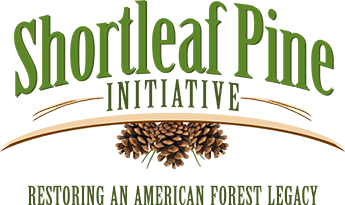Frequent fire protects shortleaf pine (Pinus echinata) from introgression by loblolly pine (P. taeda) (2014)Stewart, J. F., Will, R. E., Robertson, K. M., & Nelson, C. D. (2014). Frequent fire protects shortleaf pine (Pinus echinata) from introgression by loblolly pine (P. taeda). Conservation Genetics, 16(2), 491-495. Retrieved from https://www.srs.fs.usda.gov/pubs/ja/2014/ja_2014_nelson_001.pdf Across much of the globe, fire is a major disturbance agent of forest and grassland communities. The removal of fire from previously fire-maintained ecosystems, which has occurred in many areas, changes species composition, favoring later less fire tolerant species over fire-adapted ones. A recent measured increase in the rate of hybridization between the fire-adapted shortleaf pine (Pinus echinata) and less fire-adapted loblolly pine (P. taeda) suggests that introgression may be an emerging threat to shortleaf pine as a genetically distinct species. We used 25 microsatellite markers on seedlings and saplings to test how the use of frequent fire affects the survival of hybrids between the two species by contrasting species makeup and hybridity in regularly burned areas (every 2 years) to that in neighboring unburned areas, both with mixed canopies of loblolly pine, shortleaf pine, and hybrids. The results show that frequent prescribed fire selects against loblolly pine and hybrids, restoring the community to one dominated by shortleaf pine. These results are the first to indicate that frequent fire can resist introgression between two co-occurring native species and that fire exclusion as a land management policy may be having unrecognized deleterious effects on the genetic integrity of species previously isolated from one another based on fire tolerance
https://www.srs.fs.usda.gov/pubs/ja/2014/ja_2014_nelson_001.pdf |






